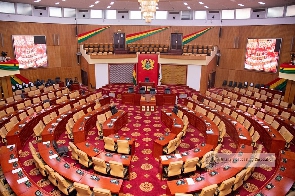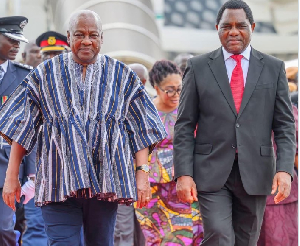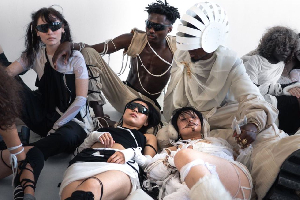Like many Ghanaians, I have monitored the controversy over the president’s decline of assent to three bills passed by Parliament with some close interest. It is the first time such a thing has happened under Ghana’s current democratic dispensation and the development boasts significant signs of a political watershed. Information on the impasse has been quite patchy and my analysis rests on what I make of the fragments I have managed to splice.
The brouhaha may be given in this summary. Ghana’s Parliament approves some bills, namely - Criminal Offences (Amendment) Bill, 2023, Criminal Offences (Amendment) (No.2) Bill, 2023, and Armed Forces (Amendment) Bill, 2023. They are presented to the president for his signatures, and the commander-in-chief refuses, contending the bills are stillborn on account of multiple statutory infractions.
The speaker rails against the effective veto, complaining about executive encroachment on his authority, and expressing bemusement over some inconsistencies in the president’s handling of one of the bills. The political commentariat wades in, the divergent stances broadly reflective of three main constituencies - the partisan-tribalists, the intellectual-philosophical, and the Machiavellian-pragmatist.
The partisan tribalists gloat at the defeat of an opposition-led legislative initiative, hoping it discourages it from further such attempts, and starves it of the political gravitas otherwise guaranteed by success.
The intellectual-philosophical sees the rekindling of the imperishable debate over the constitutional strictures on legislative initiatives by legislators in Ghana.
The Machiavellian pragmatists find the development a tactful presidential checkmate of an opposition, parochially bent on mischievously using these legislative initiatives to stampede the government into adopting a particularly controversial and fiscally hazardous piece of legislation, currently before Parliament. A surely interesting mosaic of perspectives!
Generally, I find Ghana’s constitutional provisions on law-making a vacuous jumble of contradictions that chafe at the country’s democratic pedigree in the African region. They cynically arm elected representatives with chainsaws to scupper legislations and deny them chisels to sculpt any.
They represent a nihilistic executive power grab and declawing of Parliament, with roots in the schizophrenic putsch that ruled the country for over a decade and erected the current constitution three decades ago, as a convenient scaffolding for its vault from power.
At the moment, elected lawmakers in Ghana cannot initiate any bill or motion in Parliament unless they lead to neither a raise in taxes nor an increase in government expenses. The currently vetoed bills apparently breached the latter criterion.
Given the financial and time commitments of drafting and shepherding bills in Parliament, the tragic fate of the three bills should be a scathing indictment of Ghana’s Parliament, if it’s true the necessary due diligence was bypassed by both ruling and opposition members of the House, and the Attorney-General, ostensibly involved in the process.
The president’s assurance to reintroduce the bills provides scant consolation, given its implied repeat of expenses and re-dedication of time to the bills’ reproduction. In the president’s missive was the distressing cue about the difficulty in even imagining how the rejected bills leap into the government’s legislative priorities in the ensuing election year!
As the controversy rages and the prospects of a Supreme Court resolution crystallise, I hope this marks a moment Ghanaians awake and attend to the drawbacks of the country’s constitution and democracy, and take the expedient measures to further burnish the country’s hard-won credentials.
Opinions of Sunday, 31 December 2023
Columnist: Michael Gyekye















